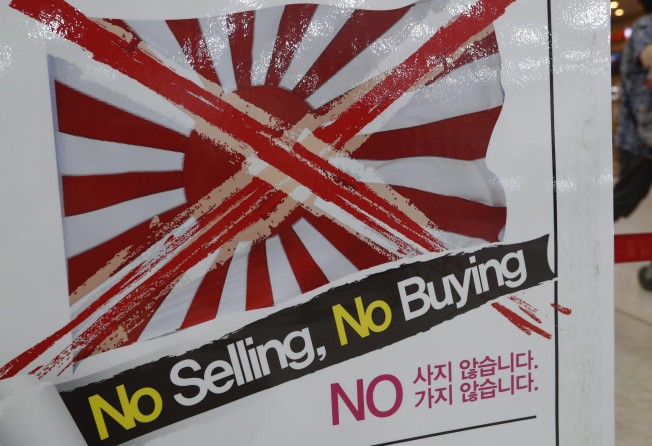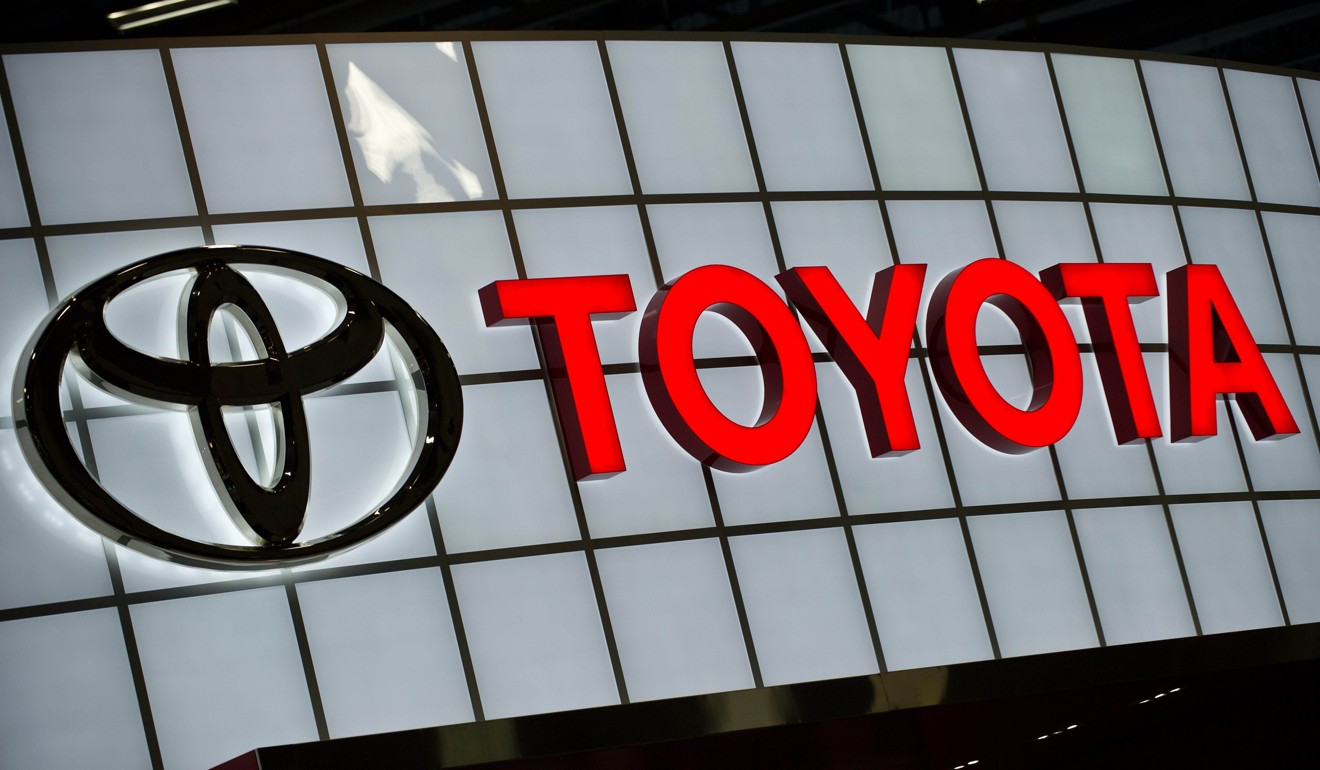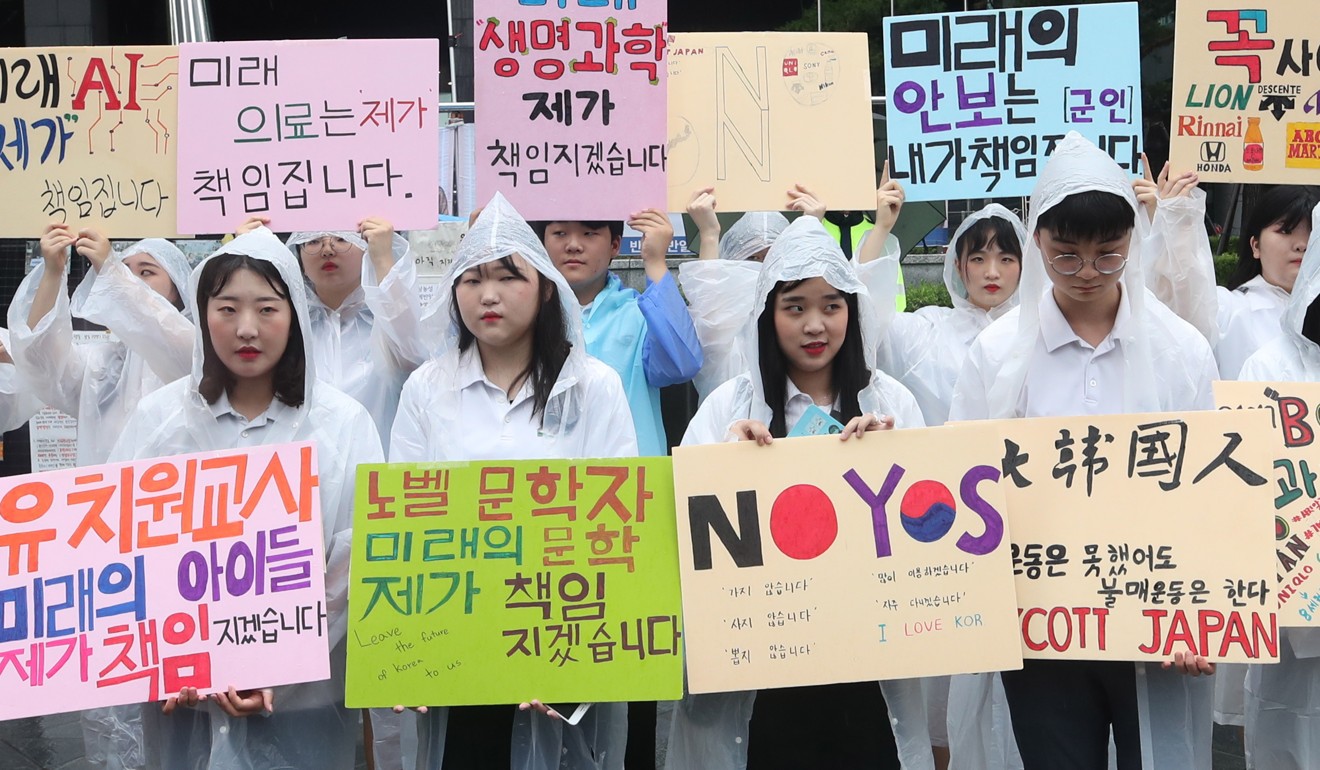Toyota, Lexus, Honda and Nissan cars ‘kimchi slapped’ in South Korea amid rising trade tensions
- A car owner found their vehicle covered with the fermented food, while another smashed his eight-year-old Lexus, saying he was embarrassed to have a Japanese car
- Calls continue for Koreans to boycott Japanese goods over Tokyo’s restrictions on a number of important industrial exports

In South Korea, Japanese cars are being vandalised and having fermented vegetables thrown at them as the nation witnesses a surge in anti-Japan sentiment amid an escalating trade dispute between the two countries.
Since early July, Japan has placed curbs on certain hi-tech exports to South Korea in what Seoul has branded retaliation for a Supreme Court decision ordering a Japanese steelmaker to compensate victims of wartime forced labour. On Friday, Japan announced that it would decide on August 2 whether to take South Korea off a list of countries that currently receive preferential trade treatment.
South Korea has retaliated in kind with an unofficial boycott against Japanese fast fashion brands, restaurants, cosmetics and even beers. And now it seems that Japanese-made vehicles have become the latest casualties. In recent weeks, South Korean owners of Japanese cars, including Toyota, Honda and Nissan, have reported acts of vandalism involving their vehicles.
An unnamed man who drives a luxury Japanese car in Daegu, a city in the country’s southeast, said his vehicle was “terrorised by kimchi” after it was found covered with the fermented food, according to reports in local media.
Meanwhile, other owners of Japanese cars reported finding scratches and other forms of vandalism on their vehicles. Amid the backlash, some car owners have even taken to posting letters of apology on their vehicles. “I will not buy Japanese cars in the future,” read a note by the owner of a Lexus, a luxury car brand manufactured under parent company Toyota.

Since Tuesday evening, a video of a South Korean man vandalising his own Japanese-made vehicle has been making the rounds in the nation’s news outlets and on social media. The clip taken in Incheon, a satellite city near the capital Seoul, shows 48-year-old Song Mo using a stick to smash up his Lexus, which he had owned for eight years. In a parking space roped off with Korean flags and signs stating “No [Japan]. Boycott Japan,” Song told the crowd: “I am embarrassed to be driving a Lexus. Everyone – let’s join in on this boycott together.”
The video garnered mixed reactions online in South Korea, with some applauding Song’s act of “patriotism”, while others said it was irrational and ultimately one of self-sabotage.
I am embarrassed to be driving a Lexus
“This is the same as what the Chinese did in 2004,” wrote one social media user, referring to the anti-Japanese sentiments exhibited during the 2004 AFC Asian Cup soccer final in Beijing, which saw the Japanese team being booed and a Japanese ambassador’s car damaged. “I’m surprised we are 15 years behind China.”
But there were those who found humour in the situation. “If Hyundai were to give him a free car for this, I wonder if it would become a national phenomenon,” wrote Lee Sangyoung in response to a YouTube video of the incident. “This is incredibly brave and what we should all do,” said Hun-jae, another viewer.
Others failed to see the point of destroying something you already own. “You can use products you already purchased. The important thing is to [join the] boycott from now on,” wrote one Twitter user.

For some, the escalating trade dispute has dredged up bad memories. “I cannot help but think about the bad sentiments I have towards Japan. My grandfather died while being beaten by Japanese people during the Japanese occupation [from 1910-1945],” said Park Mun-so, a food delivery man living in Paju. “As for the man who destroyed his own Lexus, I would guess he had his own personal reasons for doing it,” he said, adding that he would also participate in the boycott.
Owners of Japanese cars in South Korea may also find it increasingly difficult to operate their vehicles, as reports have emerged of petrol stations and car repair shops refusing to service them. On its homepage, the Korea Oil Station Association recently announced that it would no longer sell fuel to those driving Japanese cars, while an organisation of car garages also stated that it would no longer service the vehicles, according to a report in The Guardian.
Imported cars accounted for about 14 per cent of the total in South Korea last year, local media reported, with Japanese cars comprising 17.4 per cent of foreign car sales.
Additional reporting by David Lee